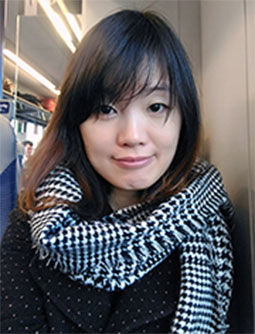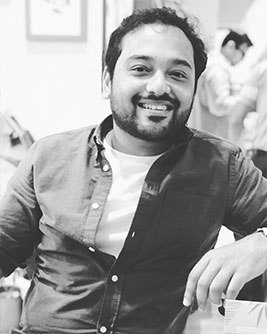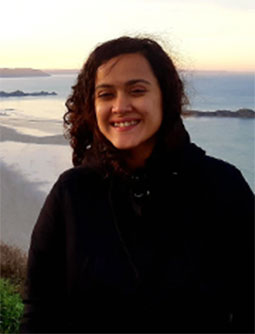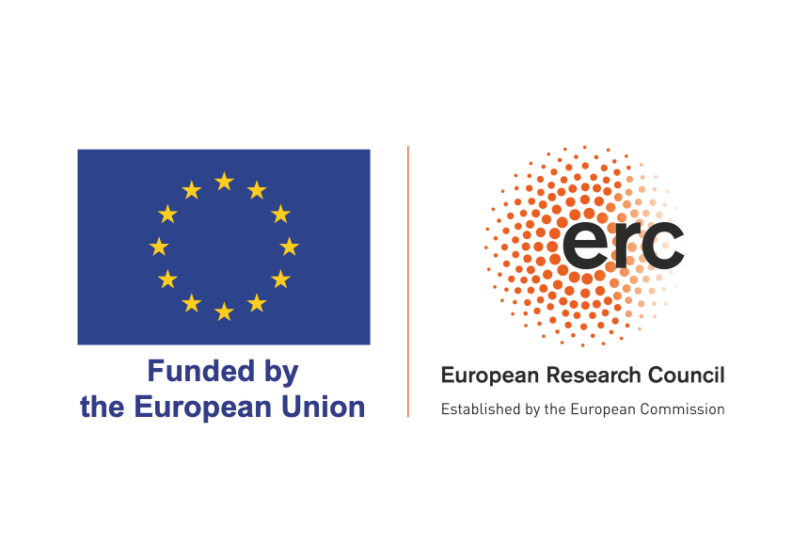DenCity staff
DenCity staff

Colin McFarlane
Colin McFarlane is Principal Investigator on DenCity and Professor of Urban Geography at Durham University, UK. His work focusses on urban experience and politics, including research on urban living, densities, fragments, and learning across different cities, focussing in particular on the economic margins. In the DenCity project, his work has focussed on how high urban densities are shaped and lived in different domains, including density and crowds in public space, on the move, and in the neighbourhood and home. He is author of ‘Waste and the City: The Crisis of Sanitation and the Right to Citylife’ (Verso), ‘Fragments of the City: Making and Remaking Urban Worlds’ (University of California Press) and ‘Learning the City: Knowledge and Translocal Assemblage’ (Blackwell), and a series of edited books, including: ‘Global Urbanism: Knowledge, Power and the City’ (Routledge, with Michele Lancione), ‘Smart Urbanism: Utopian Vision or False Dawn?’ (Routledge, with Simon Marvin and Andres Luque-Ayala), ‘Infrastructural Lives: Urban Infrastructure in Context’ (Earthscan-Routledge, with Steve Graham), ‘Urban Navigations: Politics, Space and the City in South Asia’ (Routledge, with Jonathan Anjaria), and ‘Urban Informalities: Reflections on the Formal and Informal’ (Ashgate, with Michael Waibel).
Twitter: www.twitter.com/ColinMcFarlane3;
blog: https://cityfragment.wordpress.com.

Dr Hung-Ying Chen
Hung-Ying joined the DenCity Research Team as a post-doctoral researcher at the Department of Geography at Durham University, and is now based at the International College of Innovation at National Chengchi University, Taiwan. She acquired the doctoral degree with a project titled Urban Air Rights as Market Devices: Exploring Financialisation in Taipei Metropolitan Area. As the first geographical study which critically explores the roles and forms of urban air rights – the right to build upwards on and above a land parcel, the PhD project has received the 2019 AAG Urban Geography Specialty Group PhD Dissertation Award. Previously, her Master thesis on Urban Governmentality in an Indonesian Ethnic Gathering Place in Taipei received the Master Thesis Award from Cultural Studies Association, Taiwan. From (im)migrant enclaves, urban financialisation, sensorial urbanism to urban geopolitics, her research concerns how space/place enable the operationalisation and transformation of societal and cultural consciousness.
Prior to and apart from working in academia, she engaged in the organising, research, and policy advocacy at Taiwan Alliance for Victims of Urban Renewal (2011-2016) and Taiwan Alliance of Anti-Forced Eviction (2013 till present). In 2016 she was the regional coordinator for the East Asia Regional Tribunal on Evictions. In December 2019, she acted as part of the Jury for two sessions in the International Tribunal on Evictions on Climate Change (Santiago, Chile and Madrid, Spain).
In DenCity project, she focussed on two themes: vertical density and market exchange intensity in the cities of Hong Kong and Mumbai. Both themes examine how density is experienced, perceived and practiced in people’s everyday life.
Both Hong Kong and Mumbai are known for their sharp contrasts between speculative vertical building booms and exclusive housing economies. In Hong Kong, informal settlements are the direct outcome of removal of rent control. Hyper-dense housing patterns are operated by logics of subdivision and often rendered invisible. In Mumbai, auto-constructed hutments are highly visible.
Across the two themes, we ask:
What are people’s sensorial experiences of the urban densities in Hong Kong and Mumbai?
How have such sensorial experiences informed the textures, shaped the perceptions, and unveiled the politics of urban density?
What kinds of life-support systems have devised the variegated density assemblages and their relationships?

Dr Romit Chowdhury
Romit Chowdhury was a postdoctoral research associate in the Department of Geography at Durham University prior to taking up a role as Senior Lecturer in Sociology at Erasmus University College. He has a PhD in Sociology from the National University of Singapore. His research interests are in urban studies, feminist studies, ordinary ethics, and ethnographic methods. The monograph he is working on is an ethnography-led study of the relationship between masculinities, co-presence, and everyday urban mobilities, through a focus on the laboring lives of male public transport workers in Kolkata. His earlier work has explored masculinities in the contexts of men’s rights movements, feminist methodology, sexual violence, care-giving, and men doing feminist research and activism in India.
As part of the DenCity project, the emphasis of Romit’s research was on the social life of high urban density in busy transport hubs. How do urban actors, occupying disparate social locations, make the city inhabitable for themselves through their encounters with density? His work on the project traces the everyday urban affects (fear, enchantment, annoyance, discontentment, relief) generated by density on-the-move and how these produce the city as a particular kind of infrastructural space. This work has been published in an open access papers in Urban Studies and Urban Geography:
Chowdhury, R. and McFarlane, C. (2021) ‘The crowd and citylife: materiality, negotiation and inclusivity at Tokyo’s train stations. Urban Studies, https://journals.sagepub.com/doi/full/10.1177/00420980211007841
Chowdhury, R. (2020) ‘Density as urban affect: the enchantment of Tokyo’s crowds.’ Urban Geography, 41, 10, https://www.tandfonline.com/doi/full/10.1080/02723638.2020.1850988

Dr Victoria Habermehl
Victoria is a Research Associate in the Department of Geography, on the ERC ‘DenCity’ project. Her work on the project is focused on understanding the impacts of COVID-19 on urban density and intensity across London, New York and Milan.
She is a visiting research associate at the Urban Institute at the University of Sheffield, co-organising the Sheffield Desk on Popular Economy. She has a PhD in Geography from the University of Leeds, focused on organising in-against-and-beyond crisis in Buenos Aires, Argentina, through the economy, state and territory.
She has previously worked as a Research Associate in the Urban Institute at the University of Sheffield, on the GCRF research project ‘Whose Heritage Matters?’ and the ESRC ‘Whose Knowledge matters?’ as well as University College London on the project ‘Economics in the Public Sphere’ and at Brunel University in ‘Timescapes of Urban Change’.
Research interests
Her research focuses on social justice issues in the Majority and Minority world, examining the intersectional (re)production of inequality and everyday political responses to this. Her work advances economic geography and urban studies, examining everyday life in cities and the antagonistic processes involved in urban politics- embodied in social reproduction, neighbourhood organising, gentrification and displacement. She advances debates on how the economy is understood and reshaped through crisis, narratives of economic informality and everyday economic practices such as economic solidarity initiatives, autogestion and popular economy.
She has research experience in Latin America, particularly in Buenos Aires, as well as in different urban contexts in Manchester, London, Kisumu, Cape Town and Barcelona, and is involved in several international research networks.
Publications
Journal articles:
The Risk Of Austerity Co-Production in City-Regional Governance in England. Habermehl, V and Perry, B (2021) IJURR 45(3):555-571
Everyday antagonisms: Organising economic practices in Mercado Bonpland, Buenos Aires. Habermehl, V. (2021). Environment and Planning C. 39(3):536-554.
Producing Territory: Territorial Organizing of Movements in Buenos Aires. Mason-Deese, L. Habermehl, V. and Clare, N. (2019). In: Contested Urban Territories. Struele, M and Schwarz, A. eds. Geographica Helvetica. 74: 153-161
Territories in contestation: relational power in Latin America, Clare, N. Habermehl, V. and Mason-Deese, L (2018) Territory, Politics, Governance 6:3, 302-321,
Book Chapters:
Territories in contestation: relational power in Latin America. Clare, N. Habermehl, V. and Mason-Deese, L (2020). The Confines of Territory. Agnew, J. ed Routledge: Abingdon.
Networks of alternative economies in Buenos Aires; markets as spaces of contestation. Habermehl, V. and Gallardo, N. and Arqueros, X. (2018) In: Contested Markets: Contested Cities. Gonzalez, S. eds. Routledge: Abingdon.
Towards a Theory of ‘Commonisation’: An anarchist approach to Territory. Clare, N and Habermehl, V. (2016) Transgressing Frontiers: Anarchism, Geography, and the Spirit of Revolt. Springer, S. White R. and Lopez de Souza, M. eds.
‘On the graduate with no future’. Gillespie T. and Habermehl (2012). In Occupy Everything! Reflections on why it’s kicking off everywhere. Lunghi, A. Wheeler, S. (eds). London/New York: Minor compositions.
Other format Publications and working papers:
Popular Economy Glossary. Habermehl, V. (several submissions) (2021) Cityscapes Magazine. Co-ordinated by Popular Economy research desk.
Contested Territories: Lessons from Interdisciplinary dialogues on conflict resistance and alternatives in Latin America. Horn, P. De Carli, B. Habermehl, V. Lombard, M. Roberts, P. Tellez Conteras, L. (2021) Contested Territories Working Paper series (1)
Real or fake? Crisis and Self-managed economies in Buenos Aires. Habermehl, V. (2019) Special Publication, workshop magazine sponsored by Urban Geography. Eds Silver, J. and Meth, P. 10:12
A mysterious death in Argentina draws attention to indigenous land struggles. The Conversation. Clare, N. Mason-Deese, L and Habermehl, V. (2017). Online available at: https://theconversation.com/a-mysterious-death-in-argentina-draws-attention-to-indigenous-land-struggles-86028
Doing Public Geography, Making Scholarship Public. Guillermo Delgado and Victoria Habermehl (2014) Antipode intervention.

Dr Priyam Tripathy
I was a post-doctoral research associate on the DenCity project between 2018 and 2021.
My research interests lie at the intersections of urban studies, political and environmental geography, and postcolonial studies. Before arriving at Durham University, I earned my doctorate at the Department of Geography at the University of Illinois at Urbana-Champaign, USA. My doctoral research focused on questions of urban governance, land and property markets, and the socio-political reengineering of Indian cities. At the University of Illinois-Urbana-Champaign, I also worked as a Teaching Assistant and enjoyed teaching courses on globalization, environment and conflict, and political geography. I completed my M.Phil. in Urban Planning and Development from the Indian Institute of Technology at Bombay where I examined the social and environmental impact of urban redevelopment policies on informal settlements in Mumbai. I have over 10 years experience of conducting ethnographic research in India. In India, I pursued my Masters of Philosophy in Urban Studies from the Indian Institute of Technology and Masters in Sociology from Jawaharlal Nehru University.
In the DenCity project, my work focused on waste and intensity in cities. Studying high-density Asian cities like Mumbai, Dhaka, and Manila, in particular, this research aimed to understand how residents across informal settlements and landfills perceive and experience solid waste, including how they struggle with and find new ways of surviving everyday densities. The aim has been to construct ‘grammars of density’ based on resident’s everyday lives in the presence of waste, who’s perceptions matter for governing waste, what are the different positionalities that emerge, and how different sections of the society contribute to new sets of discourses on densification?



